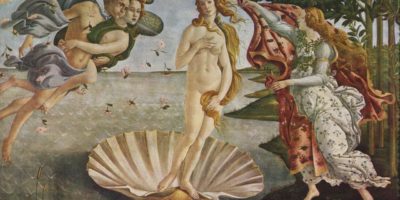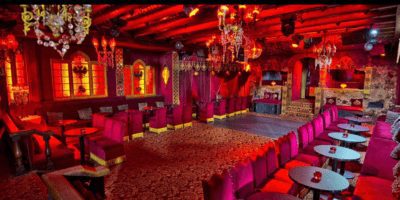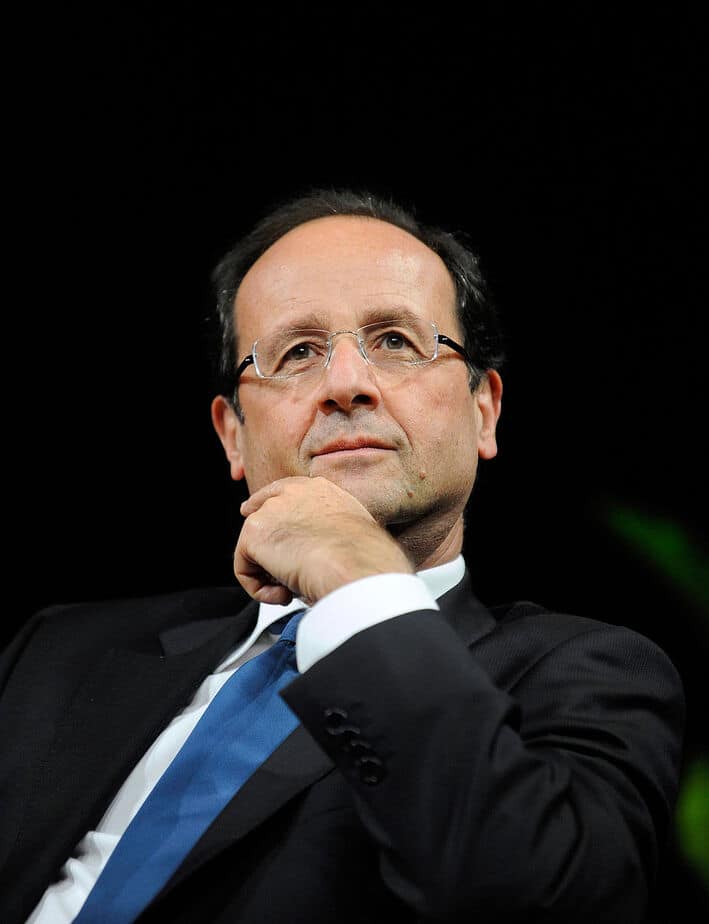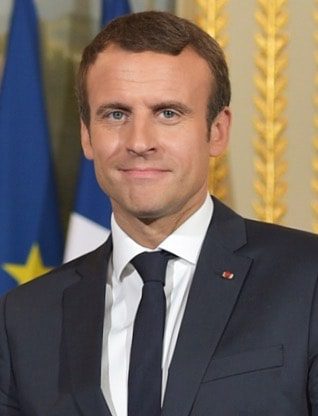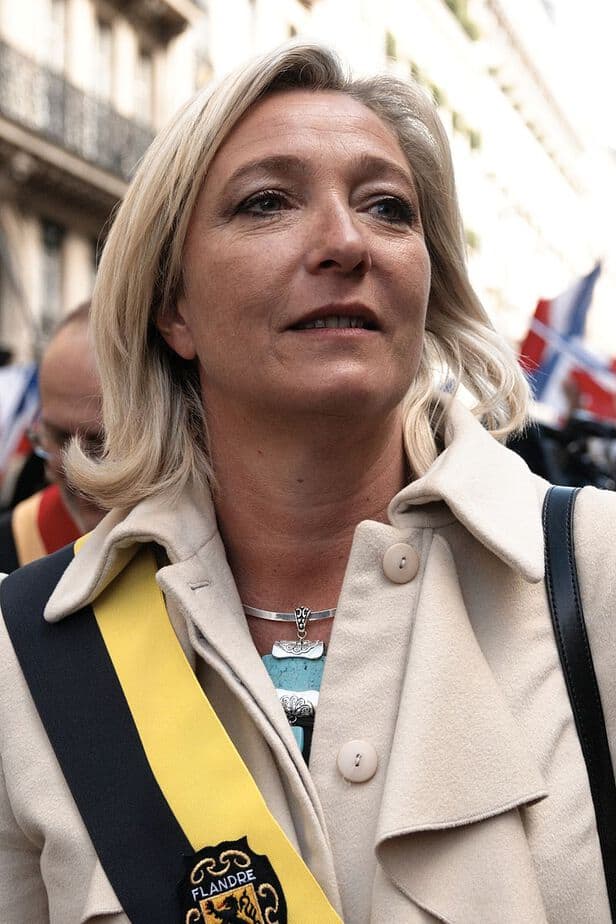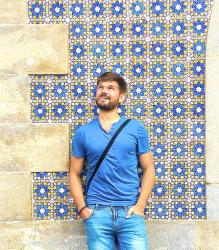French Politics : Explained! (part II) – the Political Landscape
Every single time I meet foreigners, it appears quite clear to me that they don’t really understand the French political system. And I can’t really say that I don’t see why, considering that the French themselves can’t seem to fully agree on how it works. In order to clarify it, and since it is indeed very different from what exists in other countries, let me start a two-part article to finally make the politique française crystal clear again! Or at least try to…
In Part One of this article, I explained what the main institutions were, and how the Political life was structured. Now that we got this covered, you will need to know what the current political landscape looks like. This is quite hard to give a comprehensive description of the French political life.
Indeed, politicians often change their ideas, swing from party to party, come and go… That is the whole political game. A few key ideas, however, have to be clear for you if you wish to keep up! I really want to stress that the following description is a very broad depiction to help you navigate the extremely complicated political landscape. Of course, to insiders, these views will seem too simplistic. You have been warned!
The specifics of the political landscape in France
Vocabulary
One important thing to consider is that each country has its own political landscape. Common words used to describe them, such as “right”, “left”, or “socialist” and “liberal” for instance, are to be understood in the context of the country.
In the case of France, the overall political landscape is a bit more to the left compared to the one in the US for example. Therefore, in France, “left” and “right” aren’t the same as what they are in other cultures.
Likewise, “socialism”, in French politics, bears a very vast meaning which has too often been wrongly reduced to “communism” – which can never be further from what it truly is. The two ideas have actually very little in common.
Communism is a very specific part of a specific version of socialism. It is a goal pursued by extreme socialist movements, who believe (to describe it very roughly) that capitalism leads to inequalities and suffering, and that only the suppression of private property can lead to happiness.
Real communism, as originally wanted, was never reached, but several countries in history implemented systems that were very undemocratic in order to reach this, in vain. These countries were/are, for instance, the USSR, Cuba, or North Korea…France was never a communist country. The communist party may have had some strong moments in the past century, but it now represents a tiny portion of votes.
More realistically, in France, the term “socialism” describes a system which favors the reduction of inequalities. The health care system, public funds, the defense of minorities, and welfare are generally considered socialist ideas.
The Lives of the Politicians
In France, politicians, whatever their role, are perceived as working in politics. Their private life has no real importance, as long as they respect the laws (not respecting the law would lead to question their legitimacy as representatives of the people). This deeply contrasts with what may happen in other countries such as the US or the UK.
One famous example is when François Hollande, who was the President of France, left his partner –who was then considered the First Lady – because he had an affair with a famous French actress (who has since become his partner). Such an affair could have totally dilapidated his career, had he been in another country.
In France, however, the story only buzzed for a few days, and then, was shrugged away. After all, all that was asked of him was that he ran the country, not that he was faithful to his domestic partner. The French consider that a politician’s private life should not interfere.
As I previously said, however, there is a line not to cross: the law. The example of 2012 candidate Dominique Strauss-Kahn, arrested in New York on rape charges a few weeks before the presidential election, clearly proves it, since this episode cost him not only the election but also his political career.
Religion and Politics
Since 1905, France is officially and legally a secular country. The concept in France is known as “laïcité”. Laïcité, however, is quite different from what it means in other countries. Contrary to the idea that secularism implies that political and state matters should not be influenced by religious ideals – and therefore that state decisions, rules and laws are applied independently of your religious beliefs – the French laïcité goes one step further.
Indeed, in France, Religion – whether in discourse or as symbols – is excluded from the public sphere. In France, it is illegal to display publicly your religious beliefs in the public sphere, unless the situation calls for it.
The Main Parties
Unlike in the US or the UK, there are not two major parties in France, but many ones. Although, historically two of them dominated and shared power through time, this is no longer the case, at all.
Far-Left
To the very left side of the political landscape, two main parties dominate in the debate:
- The PCF (French Communist Party) mostly wishes to overcome capitalism and their ideas are quite inspired from the main communist ideas that rippled through Europe in the 1920s. Once very strong, the PCF is now a side party, even if its representation remains non-negligible.
- France Insoumise (Unbowed France) is a movement created by Jean-Luc Mélanchon. It mostly denounces the system in place and aims at dismantling the Fifth Republic to start the Sixth Republic. In this new republic, politicians would be fully accountable to the citizens and could be revoked. The party defends the weakest, or workers who struggle as opposed to those who – according to them – unfairly benefit from capitalism. At last, the party also wished to turn to a 100%-renewable-energy system. Jean-Luc Mélanchon was a very vocal candidate during the 2017 Presidential Election. The Party now occupies 17 seats at the National Assembly (which is almost 3%, more than the PCF).
Left & Centre-Left
The left-wing has greatly been transformed in the past few years. There are countless politicians who left the main Socialist Party after François Hollande left presidency and the debacle of the Party, and then created their own party.
I only list a few of them below but there are actually many more, at the national and regional level.
- Ensemble! (Together!) is a left-wing party defining itself as anti-capitalist and eco-socialist. It defends new alternative ecological and solidary politics of the left. The Party is not very represented. Of all institutions, it only occupies 2 seats at the National Assembly.
- Generation.s is a party that was also created following the 2017 debacle of the Social Party, by former candidate Benoit Hamon. The Party was openly created to refound and gather the left after the decline of the PS. It is one of the few parties which defend a strong cooperation at the European level.
- The PS (Socialist Party) was historically the largest left-wing party, and by far the strongest. Two French Presidents were from the PS: François Mitterrand (President from 1981 – 1995), François Hollande (2012 – 2017). The PS defends a democratic socialism, with a regulated and fair market economy. A strong welfare system, equality of chances, social justice and the reduction of inequalities are key ideas of the PS.
Originally, the PS was born from communist movements but seceded from them in the mid-20th century, to turn to “those non-communists from the left-wing”. Following the hard period of Hollande’s presidency, the PS members started to diverge in ideas and sub-movements appeared, slowly eluding the Party. Today, the Party which was once one of the two largest parties in France, only holds 25 seats at the National Assembly, and 2.7% of the French seats at the European Parliament. This marks one of their lowest results ever.Among the famous people from the PS, you may hear of Lionel Jospin, Laurent Fabius, Ségolène Royal (who played a key role at the COP21 Paris Agreement on Climate Change), Martine Aubry and Olivier Faure.
- EELV (standing for Europe-Ecologie-Les-Verts, or Europe-Ecology-The Greens.) is the main ecologist party. The ecology ideas were long defended in a separate way, making the Party quite weak for a long time. However, the increasing of environmental issues in the public debate turned the attention towards the Party. At the same time, the ideology of the Party shifted, from a purely ecologist discourse, to an ecologically mindful discourse (which means that the Party now explains that ecology must be a general worry to take into account in every decision, and at every level of the state). During the latest European Elections, the EELV Party recorded the third strongest vote, granting them 8 seats (more than 10%) at the European Parliament. The European Election results clearly underlined the sharp shift to a more ecological debate all over Europe.
Centre
For long the Center was not even considered in the political debate. The two historical parties, the PS in the left-wing, and the Republicans in the right-wing were so strong that they mostly eclipsed all of the others. However, when Emmanuel Macron created his Party prior to the 2017 Presidential Election, and then won, the whole perspective changed and the center ideas, often seen as alternative and well-balanced, became prominent in the debate.
- The MoDem (Democratic Movement), whose leader is François Bayrou, aims mostly at bridging the left-right divide – including by taking constitutional reforms, and openly takes a pro-European stance.
- UDI (Union of Democrats and Independents) is another important Center party.
- La République En Marche! (LREM) is the Party founded by Emmanuel Macron right before he became President. Its main ideology is rather on the right side as far as economic matters are concerned, while social matters are rather dealt with through left-wing ideas. LREM is not really a center Party, and it actually never officially positioned itself on the political board.
However, despite having a right-wing economical approach, favoring effort, entrepreneurship and a clever form of capitalism, the idea of ensuring a saner welfare and the open support to minorities make it very distinct from traditional right parties.
LREM took the National Assembly by a landslide and now own 305 seats at the Assembly (53% of the seats, thus controlling an absolute majority of votes).
Right-Wing
- The Republicans is the main right-wing party. With 17% of the seats at the National Assembly, it is the second largest party in France. The name, Republicans, has nothing to do with its American counterpart. The French Republicans are in line with the concepts of Gaullism, the ideology deriving from the ideas of Charles de Gaulle, the founder of the Fifth Republic. The Party defends a strong and independent France, taking part in a cooperative and strong European Union (see part I of the article). According to them, the political system must be pragmatic, the economy should be liberal but humanist. Previous Presidents Jacques Chirac and Nicolas Sarkozy are both Republicans. The Party covers a wide array of ideas. Those members who consider it a Center-Right Party are quite progressive, and defend a fair balance between private initiative and state support. A firmer branch, rising stronger in the past years, is much more traditionalist and conservative, with a stricter immigration and law enforcement policy. Other important figures of this Party are Laurent Wauquier, Nathalie Kosciusko-Morizet, Edouard Philippe (the current Prime Minister), François Fillon…
Far-Right
- The National Rally (former National Front) is the main far-right Party, whose main politician is Marine Le Pen. Derived from the policy of her father, Jean-Marie Le Pen, the National Rally aims at addressing a wider audience, and remove the quite negative image the Party bore, mainly due to the virulent and very controversial discourse of Jean-Marie Le Pen. With very strict immigration policies, the idea that France must be fully independent and advocating for protectionist laws, the National Rally has had a growing success over the past twenty years. Marine Le Pen was Macron’s challenger during the second round of the latest Presidential Election. Often described as too-conservative for its time, the National Rally (or RN) is currently trying – quite successfully – to rejuvenate and soften its image.
Once again, this list is not comprehensive. There are many more small parties. But you have here a good overview of the main ones. I hope this helps you understand better and navigate the intricate concepts of French politics !
Planning a trip to Paris ? Get ready !
These are Amazon’s best-selling travel products that you may need for coming to Paris.
Bookstore
- The best travel book : Rick Steves – Paris 2023 – Learn more here
- Fodor’s Paris 2024 – Learn more here
Travel Gear
- Venture Pal Lightweight Backpack – Learn more here
- Samsonite Winfield 2 28″ Luggage – Learn more here
- Swig Savvy’s Stainless Steel Insulated Water Bottle – Learn more here
Check Amazon’s best-seller list for the most popular travel accessories. We sometimes read this list just to find out what new travel products people are buying.


